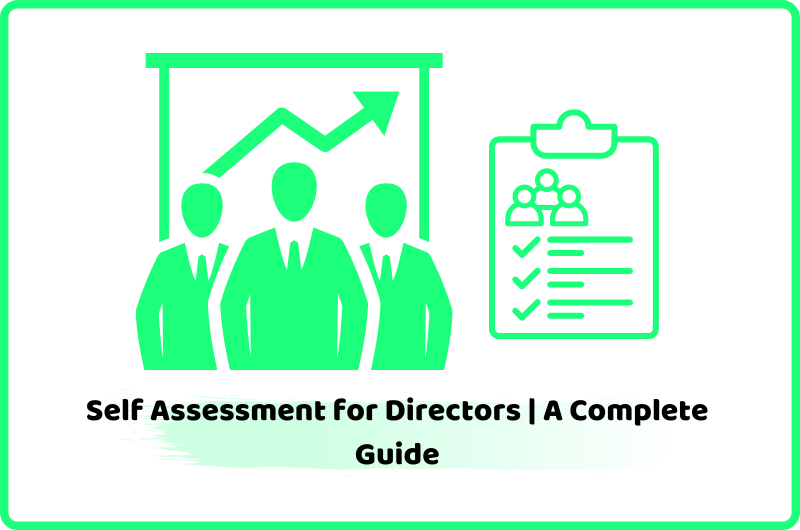Self Assessment for Directors | A Complete Guide
Managing a company as a director requires directorship responsibilities that also include tax compliance. The question many directors ask is about the requirement to file a company director self-assessment tax return. Directors must file a company director self-assessment tax return based on criteria such as their method of receiving income and their tax liability. Knowledge about director tax rules will help directors avoid penalties by maintaining HMRC regulatory compliance.
Need help with your Self Assessment Tax Return? Let us make it simple for you.
Understanding Of Company Director Self-Assessment
HMRC operates Self-assessment as their method to tax incomes that do not receive automatic source-based deductions. Directors typically receive their wages through PAYE while they need to report all other earnings like dividends or business profits separately through self-assessment.
Company directors must file tax returns even when they think their taxes are already paid to HMRC. You must always check whether filing is required to prevent potential penalties from arising.
Do All Company Directors Need to File a Self-Assessment?
Most company directors must fill out self-assessment tax returns except for those earning only from PAYE yet having no remaining tax obligations. Tax return filing becomes compulsory when one of these conditions applies to you.
- When dividends from your business exceed the tax-free dividend allowance, you will receive them.
- Your additional sources of income from salary-earning activities include rental income and freelance work in addition to investment returns.
- Your income exceeds PAYE amounts yet remains untaxed.
- To get the tax relief on expenses and pension contributions, you must file a tax return.
- HMRC requires you to submit a tax return using the self-assessment system because of their specific demand.
The tax penalties arise from not filing your required tax returns, so you need to check what obligations you have before deadlines.
How to Stay Compliant
Proper record keeping and awareness of tax benefits for directors constitute essential components to comply with HMRC rules.
- Maintain a reliable system for documenting all money that comes in and goes out.
- Learn about the business tax advantages company directors have access to.
- Send your self-assessment tax report to HMRC before the deadline.
- Pay all taxes you owe before the due date to prevent penalty fees from HMRC.
How to Register for Self-Assessment as a Company Director
If you are required to submit a company director self-assessment, follow these steps to register with HMRC:
- Check if you need to register: If you need to, then use HMRC’s online tool or consult a tax expert.
- Create a Government Gateway account: This will allow you to manage your self-assessment taxes online.
- Register for self-assessment: Use form SA1 if you haven’t filed before. If self-employed, use form CWF1.
- Receive your Unique Taxpayer Reference (UTR): The HMRC will send the UTR code.
- Activate your account: Use the activation code sent by HMRC.
Common Mistakes to Avoid
Most company directors handle their taxes poorly through avoidable errors. These are the typical errors directors make and how to fix them:
- Assuming you don’t need to file: Some business owners think they do not have to file their taxes because they receive salary earnings through PAYE. You must submit tax returns when you accept untaxed earnings.
- Missing deadlines: Filing late results in automatic penalties. Add digital alerts to prevent submissions from being late.
- Incorrect reporting: Declare every source of your income, including dividends and additional incomes, entirely truthfully.
- Overlooking allowable expenses: Business expenses with tax relief allowance will decrease your tax burden.
- Not keeping proper records: Financial documentation should be stored for five years to support your proper bookkeeping when HMRC audits happen.
What Happens If You Don’t File a Self-Assessment?
The failure to submit company director self-assessment tax returns results in the following consequences:
- Getting late with the due date brings up a £100 fine that grows bigger with delay periods.
- Additional penalties for incorrect or late tax payments.
- Taxpayers must pay interest when they fail to pay their due tax bills.
- HMRC will initiate investigations when they detect unreported income.
Conclusion
As someone who holds a position on the board of a company, it becomes essential to understand the tax responsibilities. Tax self-assessment reporting is mandatory only for some directors but becomes necessary when they earn dividends or have secondary sources of income. Compliance with HMRC regulations will prevent you from receiving penalties while maintaining smooth tax procedures. Professionals specialising in tax regulations can assist you in both minimising the time spent on taxes and identifying all potential benefits for tax reduction.
Get in touch with our young, clever, and tech-driven professionals if you want to choose the solution to tax burden or accounting problems in the UK for your income. We will ensure to offer the best services.


